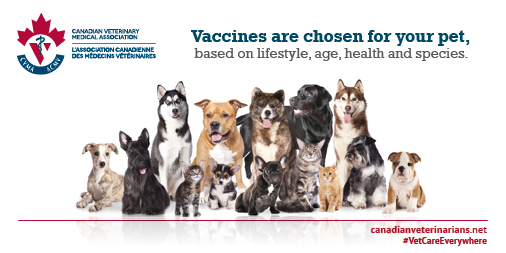
Our comprehensive CAT and DOG general physical wellness examination and vaccination programs are designed to prevent disease and prolong the lives of your companion animals. Dogs and cats age more rapidly than humans so major health issues can develop in a short amount of time. A wellness exam is recommended at least once yearly in order to diagnose, treat or prevent problems before they become life threatening. Routine annual general physical examinations and vaccinations usually only take 15 to 20 minutes. All major diagnostic work-up appointments requiring further tests are scheduled for at least thirty minutes in order for you to be able to speak with our doctors and support staff. Your concerns are properly addressed and any questions are answered thoroughly. Any new or existing problems can be discussed.
Early diagnosis of a disease process can lead your pet to a longer healthier life. Kidney disease, if diagnosed early, will allow us to modify your dog or cat’s diet and in some cases add supplements to their diet to potentially extend their lives. There are many other conditions to which an early diagnosis is advantageous. Disease prevention is always less costly than dealing with the treatment of a disease once your pet has developed it. An example would be the treatment of parvovirus gastroenteritis. Parvovirus infection hospitalization and treatment can frequently cost $1,000 or more while a proper parvovirus vaccination and booster 3 weeks later will usually cost only $100 – 200.
Thanks to new developments in veterinary medicine, pets today enjoy longer, heathier lives than ever before. Many dogs now live 12 years or more which is almost double their average lifespan in the 1950s. Nowadays indoor cats often thrive 14 years or longer. All pets even including birds, exotic pocket pets, reptiles and even fish enjoy longer lives when given proper food care. – AAHA
Click here SPECIAL CARE INSTRUCTIONS on yearly veterinary checkups for all your pets.
Canine Life Stages

What to Expect at Your Dog’s Exam
We approach your dog’s care based on his life stage, rather than his age, because dogs mature at different rates, depending on size and breed.
Life Stages
- Puppy:Newborn until reproductive maturity
- Junior:Reproductively mature, still growing
- Adult:Finished growing
- Mature:From adult up to approximately the last 25% of expected lifespan (depends on the breed)
- Senior:From maturity to life expectancy (depends on the breed)
- Geriatric: At life expectancy and beyond

Your Dog’s Exam
During each exam, we will take your dog’s temperature and check his pulse and respiration. We will also talk to you about his lifestyle, vaccinations, parasites, dental care and routine tests that may provide a baseline when your dog is young and allow early detection of disease when your dog is older. We will also discuss:
Behavior: Including obedience training, normal behavior and problem behaviors such as puppy anxiety issues or adult dog phobias.
Nutrition: We can provide tools for you to make good choices to keep your dog at a healthy weight, and we can advise you about the quality and safety of food and supplements.
Dental care: With appropriate care, dental disease and the associated pain may be prevented or minimized. We will discuss and demonstrate dental home care options. The oral examination performed while your dog is awake allows the veterinarian to design a preliminary treatment plan. Only when your dog has been anesthetized can a thorough oral exam be performed.
Zoonotic and shared diseases: These are diseases that can be transmitted or shared between animals and people. Routine testing for zoonotic diseases helps protect your dog and your family.
Safety: We will help you identify hazards, such as plants, medications, and human foods toxic to pets, and wildlife or other animals that could harm your dog.
Reproduction and breeding: You may have your dog spayed or neutered. We will explain the behavior and health benefits and concerns. We can also screen your dog for breed-specific disorders if you are considering breeding.
For more information on care for each stage of your pet’s life, visit www.healthypet.com.
Information on a Standard Protocol for Annual General Physical Examination -from the Canadian Veterinary medical Association
